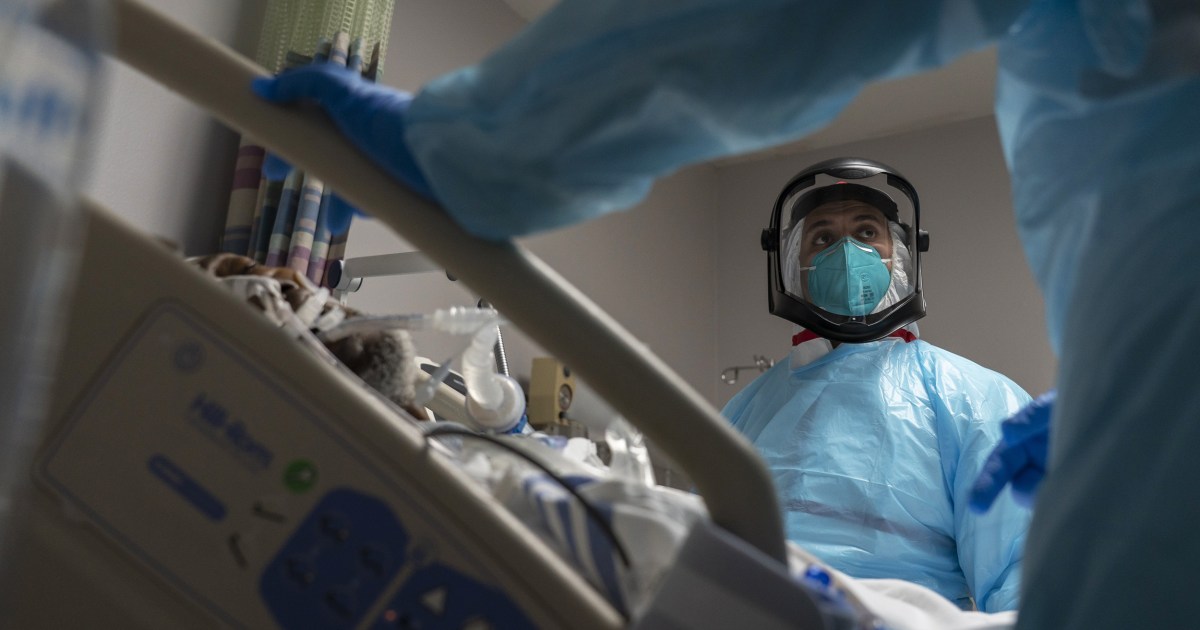You are here
 A Covid-19 peak? Variants muddy forecasts for coming months "There's so much up in the air, and the new variants have thrown a huge monkey wrench into our ability to model things," said Dr. Jeanne Marrazzo. NBC News
A Covid-19 peak? Variants muddy forecasts for coming months "There's so much up in the air, and the new variants have thrown a huge monkey wrench into our ability to model things," said Dr. Jeanne Marrazzo. NBC News Hospitalizations for Covid-19 in the United States are falling after having hit record levels this month — a welcome sign that the winter surge may finally be leveling off. But as new, potentially more contagious variants of the virus circulate, coronavirus modelers warn that the U.S. is by no means out of the woods yet.
The emergence of new variants isn't altogether surprising, but experts say that without a better understanding of how these strains affect things like transmissibility and the effectiveness of existing vaccines, it's difficult to know how the pandemic may play out.
"There's so much up in the air, and the new variants have thrown a huge monkey wrench into our ability to model things," said Dr. Jeanne Marrazzo, a professor of medicine and director of the division of infectious diseases at the University of Alabama at Birmingham. "All of those things make the crystal ball very cloudy."
Full coverage of the coronavirus outbreak
Although hospitalizations and the number of new infections in the U.S. both declined compared to the previous seven days, Covid-19 deaths are still rising. The country surpassed 400,000 deaths this week, and on Wednesday it set a daily record, with 4,131 reported deaths, according to an NBC News tally.
It's estimated that the coronavirus has undergone thousands of mutations since it was detected in humans. Many ended up being inconsequential, but scientists are concerned about any alterations that could make the virus more contagious or make the available vaccines less effective.
Evidence from the U.K. has shown that one such variant, known as B.1.1.7, spreads more easily from person to person, although it doesn't seem to make people sicker and it appears to be susceptible to vaccines. A report released last week by the Centers for Disease Control and Prevention said the U.K. variant could become the predominant strain in the U.S. by March.
New variants have also been reported in South Africa, Brazil and the U.S., with a flurry of research underway to characterize the changes. Early lab experiments suggest that the vaccines made by Pfizer and BioNTech and by Moderna may be less effective against the variant identified in South Africa, but the research wasn't done in humans, and the findings have yet to be peer-reviewed.
As variants emerge, it will be crucial to adhere to measures to slow the virus's spread and pick up the pace of vaccinations to keep all of those figures from spiking, said coronavirus modeler Alessandro Vespignani, director of Northeastern University's Network Science Institute. ...



Comments
Variant might partially evade protection from vaccines or prior